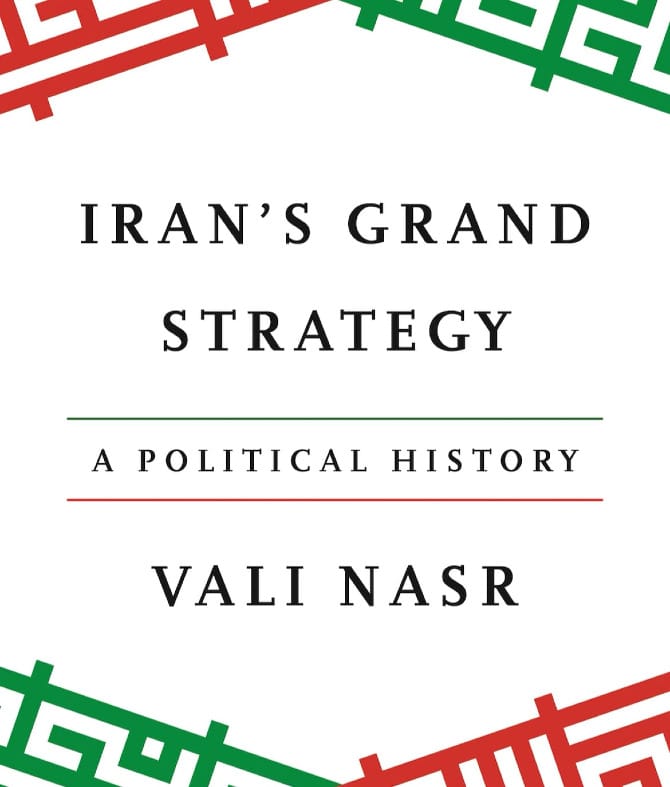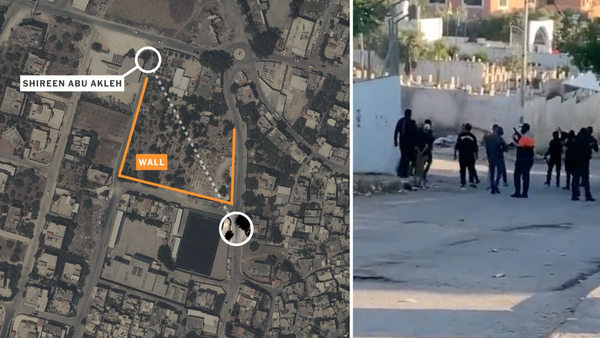Iran's grand strategy

Vali Nasr's new book offers a guide to how Iran will likely respond to Israel's war.
Israel's surprise attack on Iran has upended many long-held assumptions about regional order and security in the Middle East. Over the first four days of the war, Israel has not just targeted nuclear sites and it has made clear that the opening wave was only the beginning of a long campaign. It moved quickly to establish air superiority and now seems to be expanding its attacks in patterns reminiscent of its war against Hezbollah in Lebanon – which effectively removed from the state of play what had long been Iran's most potent deterrent weapon. Its targeting of the national broadcasting building, as well as police stations and security sites, seems designed to unleash a popular uprising against the Islamic Republic – a gambit supported both by official Israeli rhetoric and by torrents of propaganda flooding sympathetic media outlets.
Thus far, Iran's response has been limited to multiple waves of missile barrages, which have begun to break through Israel's Iron Dome missile defenses despite support from the US and its allies in shooting themn down. Iran has refrained thus far from turning its retaliation towards the Gulf states or attempted to directly disrupt oil shipping, most likely because it hopes that the Gulf states with which it has mended relations in recent years will serve as intermediaries to convince the United States to step in an stop Israel's war. But that remains a potent unplayed card in its hand of which everyone in the region is aware.
This week's direct Israel-Iran warfare thus represents new terrain, one where our existing assumptions about the balance of power, the sources of leverage, and the calculations of regimes (or efven their survival) may no longer apply. But that doesn't mean that pre-existing ideologies, institutions, and practices won't matter in shaping the responses. That makes Iran's Grand Strategy, a brand new Princeton University Press book just published by former SAIS dean Vali Nasr, useful and essential reading. Nasr traces the evolution of Iranian security doctrine from the 1979 Islamic revolution through the first year of Israel's war on Gaza, showing the deep interconnections between its domestic political institutions and its foreign policy approach – and the not infrequent tensions between them. Like Ariane Tabatabai's 2019 No Conquest, No Defeat, Mohammad Ayatollahi Tabaar's Religious Statecraft, and Afshon Ostovar's recent Wars of Ambition (all highly recommended), Iran's Grand Strategy looks closely at internal Iranian debates and actions over many decades to offer profoundly useful guidance into how Iranian leaders think about national security and international relations, and how they are likely to react to these new threats and opportunities.
Nasr's reading of Iranian security thinking highlights the enduring drive for independence and deep fears of external interventions rooted in the experience of colonialism and the long conflict with Israel and the United States. He argues that Iran has long since moved past the logic of revolution, and that Islamic ideology tells us little useful about its likely behavior. Instead, he focuses attention on Iran's deep commitment to securing its independence. He highlights two doctrines, each of which has suffered setbacks of late. First, sacred defense sought to organize Iranian society, economic, and political institutions around the ideological fervor to defend the revolution – a model which recurrent popular protests and clear evidence of declining regime legitimacy suggest has faded if not failed. Second, forward defense involved creating the network of proxies and allies built up across the region, which "sought victory in deterrence; its aim was 'reducing the likelihood of a war on Iran' and not the 'likelihood of losing that war.'" That logic, it seems, has now failed, as Israeli aircraft pummel the country while a decimated Hezbollah stands down.
The historical sweep of Iran's Grand Strategy tracks the arguments between pragmatic reformists seeking to open Iran to the world and the hardliners around the ascendant IRGC seeking to build strength through self-sufficiency. It spends a good amount of time on the 1980-88 war with Iraq, showing the enduring (and conflicting) lessons which that experience imposed on the Iranian leadership. It offers a rich discussion of Iran's brief opening to the US after 9/11, as it assisted with the initial American invasion of Afghanistan, and shows how it creatively and effectively took advantage of the American invasion of Iraq to expand its influence and power across the region. Like Ostovar, Nasr presents a narrative of Iranian success following the 2011 Arab uprisings, with a detailed and persuasive discussion of its efforts to prevent the fall of the Assad regime in Syria. More controversial will be his relatively positive reading of Iran's trajectory after October 7, 2023, which places greater weight on the impact of Israel's war on Gaza on global public opinion and the enhanced appeal of "resistance" than it does on Israel's expanding regional war on Iranian assets from Lebanon to Syria and Yemen – and, now (after he finished writing the book, of course) to Iran itself.
Iran's Grand Strategy, along with the other books mentioned here, will all help to correct against the kind of mirror-imaging, demonization and wishcasting which too often characterizes Western and Israeli analysis of Iranian foreign policy. It shows the deeper historical and ideological roots of its policy choices, as well as how they have evolved in response to the changing regional and international environment. Nasr's reading of Iranian grand strategy offers a good guide to how Iran is likely to respond to Israel's war. It is less obvious whether its strategy will survive Israel's sudden breaching of so many red lines, the dramatic shifts in the balance of power, and the new forms of targeting of the regime itself – or if its demonstrated ability to absorb attacks and evolve to meet them will once again manifest to frustrate Israeli and Western plans for regional transformation by force.



